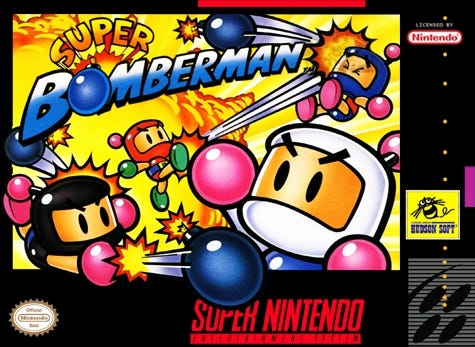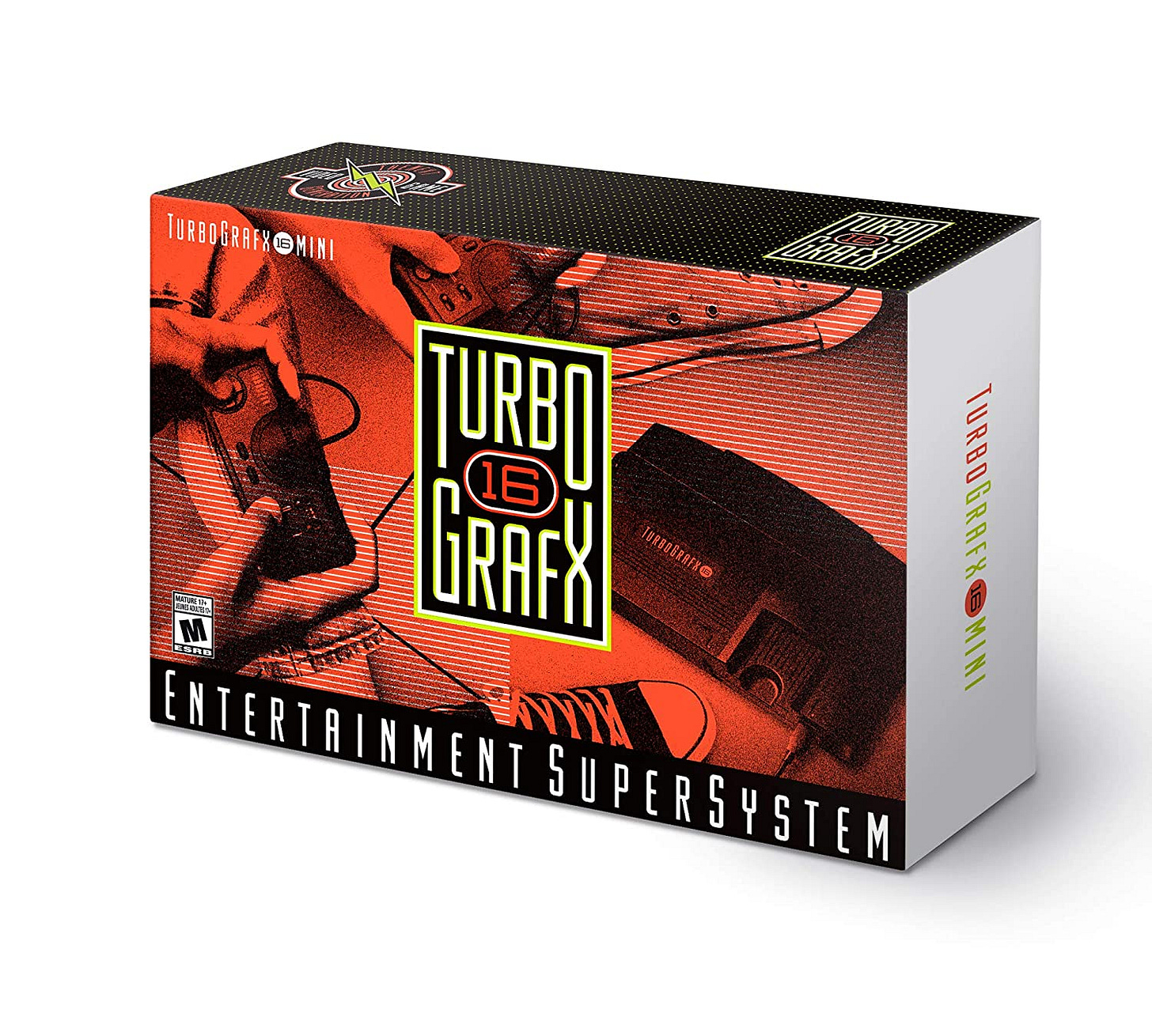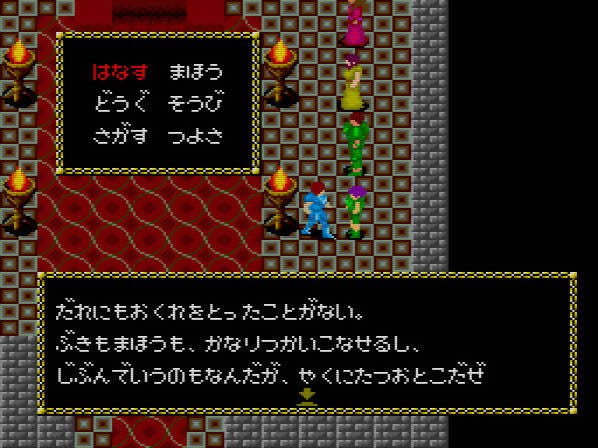Remembering Hudson Soft: Konami barely carries on Hudson's legacy
Konami has had Hudson fully absorbed into itself for a full decade now, and has done almost nothing with all of the franchises and IP that came with that move.
Hudson Soft, founded in the 70s, did just about everything a studio and publisher could do in the video game industry before it was fully absorbed into Konami on March 1, 2012. For the next month here at Retro XP, the focus will be on the roles the studio played, the games they developed, the games they published, the consoles they were attached to, and the legacy they left behind. After all, someone has to remember them, since Konami doesn’t always seem to. Previous entries in the series can be found through this link.
This month-long remembrance of Hudson Soft kicked off when it did because March 1, 2022 marked the 10-year anniversary of Konami fully absorbing the little bee that could into its larger company. There was no longer any kind of Hudson Soft studio or branding or even a modicum of independence: Hudson was now fully Konami, and also no more.
In this last decade, Konami has done almost nothing at all with the various franchises, mascots, intellectual property, whatever you want to refer to it all as, and to be frank about it, that sucks. There has been one Bomberman game released to consoles — Super Bomberman R — in the last decade, as well as an updated version of that same game. The Turbografx-16 Mini (and PC Engine Mini) could be argued to be the best of the mini consoles out there due not just to the sheer volume of games on it but the quality and general rarity of many of those titles, as well. But that’s basically all that Konami has done, in a literal decade, with a studio that had done so much during its decades of existence that I could spend an entire month writing about them and still have plenty of games I want to cover set aside for later, through the more standard coverage here.
Let’s talk about that mini for a moment, actually, as it has its high points, but there’s some weirdness there, too. It’s only available at Amazon, for one, and except for in the brief window where I was lucky enough to actually purchase it at its MSRP of $100, it has been sold for far more due to a lack of stock. Right now, you can purchase one for $295, from Amazon itself, and there are just two available. It might be great, but if it’s never in stock enough to actually sell for what it’s supposed to sell for, it’s not exactly available, is it? So how much credit does Konami deserve for the system, then, when it is more of a theoretical good than an actual one for most?
There are some other issues to point out, like that Konami didn’t bother localizing any of the Japanese titles that could have used it (and, the reverse is true for the PC Engine side of things, of course). Snatcher is basically impossible to legally find in English because its Sega Saturn release bombed — it sold just a few thousand copies in North America — but the Japanese PC Engine CD-ROM release of the game is on the mini. There was a real opportunity to do something about that the lack of available for a pre-Metal Gear Solid Hideo Kojima classic, especially since (1) Snatcher had already been localized once and (2) it is literally a Konami-developed game. Jaseiken Necromancer is a PC Engine-exclusive role-playing game, originally released in 1988, both developed and published by Hudson Soft, which means Konami has the rights to it. But they didn’t bother localizing that, either, not on the mini, and also not on the Wii U Virtual Console, where it is available, but still fully in its original Japanese. The fan translation is unfinished, and yet it’s still light years ahead of what Konami managed.
Neither of these decisions ruin the mini for me or anything — they’re more aggravating than the decision to go with Alien Crush over Devil’s Crush for the system’s lone pinball representation, or to skip out on the third of three Bonk platformers, sure, but we’re still talking about a mini with nearly 50 games on it compared to, say, the SNES Classic’s 21. And since you have access to both the Turbografx-16 Mini lineup and the PC Engine Mini’s games on the same single piece of hardware, this all includes a whole bunch of rarities you don’t need to be able to understand Japanese to enjoy. But it’s more that this is kind of the extent of Konami’s effort. That they could skip over a number of easy wins and still deliver something so wonderful, because what is there is truly great. Do more with it all! They can, and they should.
There were 33 Turbografx and PC Engine games on the Wii U Virtual Console, though, fewer now, as R-Type, Ninja Spirit, Vigilante, Legend of Hero Tonma, Battle Chopper, and both Image Fight games were delisted on June 30, 2020. There are still plenty of hits there worth grabbing — the Bonk trilogy, New Adventure Island, Bombermans ‘93 and ‘94, Lords of Thunder, Devil’s Crush, all three Star Soldier games from the TG-16/PCE, Air Zonk, plus a whole bunch of games Konami was originally responsible for like Gradius and Detana Twinbee — but the clock is ticking on that, with the Wii U VC set to shut down less than a year on from this writing.

Of course, these are just games from Hudson’s own console. Hudson was making games in the years before then, and in the years after, until Konami put a stop to that in 2012. Konami hasn't done much to revive or re-release huge swaths of Hudson's history — other than the one Bomberman release and then re-releasing Turbografx games in various formats over the years, Konami hasn’t done anything meaningful with this catalog or the IP within. They own the rights to so, so much, but you wouldn't know it given their actions. If they aren't going to do anything with much of it, they should find a buyer who will. Plenty of Hudson’s developers have scattered to other companies or retired — their heyday was decades ago, after all — but if the licenses aren’t going to be put to use by one juggernaut like Konami, you kind of wish they’d end up in the hands of another like Nintendo, where a whole bunch of former Hudson devs are working, anyway, under the NDcube banner, and because Nintendo worked more closely with Hudson than anyone else prior to Konami’s purchase of them. Which certainly means something given how closed off Nintendo tends to be with developing relationships or acquiring like-minded studios.
Regardless of which company with billions of dollars in revenue owns the rights to the formerly independent Hudson’s games, though, the problem is that, right now, nothing is being done with them. And a sale shouldn’t be necessary to fix that, especially once that would limit any solution to a single console.
Sure, Konami has so many shoot-em-ups in their own non-acquired past that Hardcore Gaming 101 was able to dedicate an entire book to just those, so I guess I kind of get that we haven’t seen a Star Soldier revival, not when Konami isn’t even reviving their own library of classic shmups, and also forgot when Gradius’ 35th anniversary was. Still, though, why aren’t Star Soldier games that already exist more available? The original is on the Nintendo Switch Online service through its NES channel, but otherwise… nothing. Where is its NES followup, Starship Hector? Is Star Soldier 64 going to come to the N64 channel on that service? Is Konami negotiating with Nintendo to get a Turbografx/PC Engine Switch Online channel like Sega did for the Genesis, which would likely get the three first-party games in front of more players? Maybe! They better be. Because the Wii U Virtual Console shuts down in less than 12 months, and all of the Turbografx and PC Engine titles available to download there right now will no longer be for sale anywhere.
My introduction to the Turbografx library came by way of the Wii Virtual Console: I never had access to any of these games before, and it opened up my (apparently!) sheltered eyes to just how many more games were out there from the past than I knew about. Konami generally doesn't act in a way where everyone who might want to can learn about Hudson's past, but they should, because it creates little monsters like me who will do things like buy up a bunch of emulated VC games on two different systems, or hand over $100 for a mini console the second I am able to do so, and then spend an entire month writing about just one part of their portfolio they’re mostly neglecting, to convince you all to also go out and do these things. When the Wii U VC shuts down, what’s next? Is that going to be it? That would be a shame, for a number of reasons.
But again, there is so much more to Hudson than just that one console. Even forgetting about what rare games might have just released in Japan for a minute, there were a bunch of Bomberman games on basically every system and handheld, and not just the multiplayer-focused ones that occasionally leaked out as downloadable titles late in Hudson’s Konami-owned life. Only one of the N64 Bomberman games is still available on the Wii U Virtual Console now, and that’s still better than the Playstation or various Sega system representation these days. We’re talking about dozens and dozens of games from just one of Hudson’s series that are impossible to find unless you emulate them or buy a cartridge or disc, and for the latter options, some of them are terrifyingly priced all these years later.
Konami could reboot Adventure Island and let people who grew up loving that series take the reins. They could develop a new Star Soldier and make a big deal about the Caravan mode, now that those are in again. Both Bonk and Zonk are in storage. Are you going to tell me that reviving Tengai Makyō or Dungeon Explorer or Super Shell Monsters or Milon makes no sense? That we can’t have another single-player-focused Bomberman title? That the strategy games renaissance couldn’t use a new Nectaris? That you couldn’t figure out a way to make a Neutopia revival work now that decades of other Zelda-likes exist in harmony with their inspiration? That there’s no room for Wonder Boy- and Alex Kidd-style modern remakes of any of Hudson’s classic sidescrollers that also include the original games with the press of a button, that Sega has already proven Konami wouldn’t even have to develop or publish themselves if they just wanted to license those things out elsewhere? In this extremely retro-based economy that’s obsessed with reboots and digital re-releases of rarities and companies whose entire purpose for existing is getting the licenses for limited edition physical editions of those games?
I say this in my most professional voice: what the fuck, Konami?
What we have is mostly silence, and probably a continuation of the limited-scope Turbografx re-release program. The mini is good, but not nearly available enough, and all of these TG-16 and PC Engine games existing on the system that nobody bought a generation-and-a-half ago was… not ideal, from a getting these games in front of people standpoint. Konami needs to do more. They need to ensure a larger percentage of Hudson’s first-party library is available. They need to start making Hudson’s games that weren’t on the PC Engine available, too. Hudson had franchises besides just Bomberman, and given the release schedule of that series, Konami might need a reminder that they even have that, too. This shouldn’t be asking for much: Konami aligned itself with Hudson way back in the PC Engine days, and then jumped at the opportunity to buy public shares in the company and take control of them more and more over time. Now that they fully own them, though, they clearly don’t know what to do with them. A decade in to this, literally anything would be a good start.
This newsletter is free for anyone to read, but if you’d like to support my ability to continue writing, you can become a Patreon supporter.





I really enjoyed reading all of these posts about Hudson. I grew up playing a lot of Mario Party, but other than that I haven't played much of Hudson's games. After reading about the different games you covered I'm interested in trying them out. Hopefully Konami makes more of them available so I can actually experience the games I missed out on.